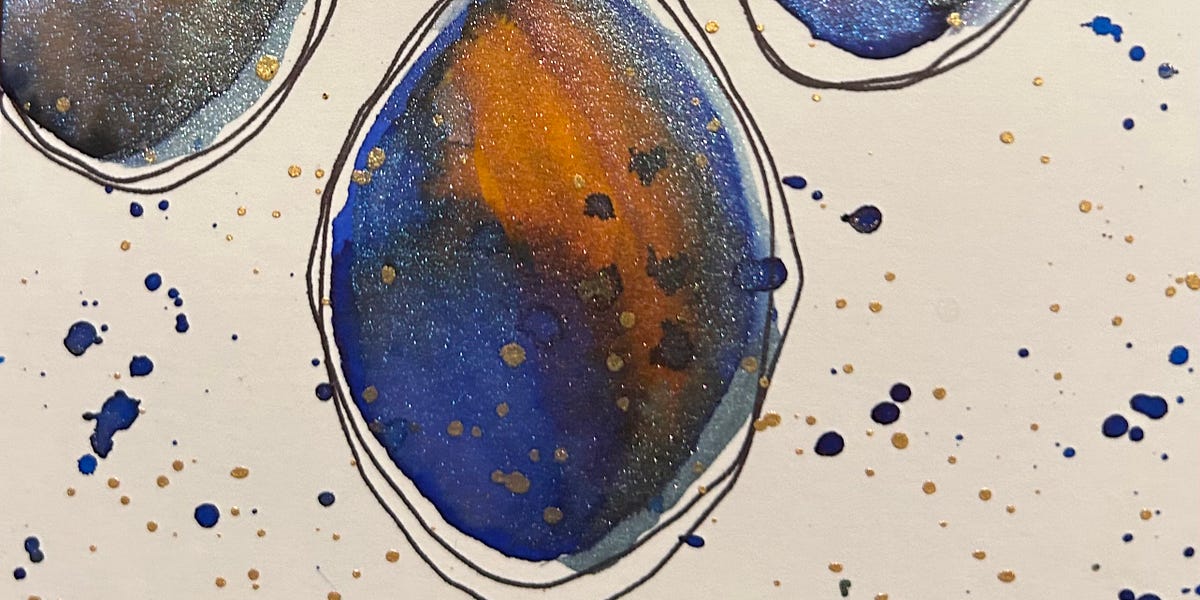Perception/Reality

The 16th century Samurai warrior Miyamoto Musashi wrote, "The perceiving eye is weak, the objective eye is strong."
The objective eye sees just what is there: the content, the event, the superficial, the tangible. The perceiving eye sees beyond the content to its issues, beyond the event to its ramifications and stakes, beyond the superficial into the meaning and subtext, beyond what can be touched to what can be felt. The perception of the event, the words, the actions is more powerful in most of our minds.
So why is the perceiving eye "weak"? Isn't that what we're all about as artists? Well, yes, but it is also where trouble can begin for those who can not separate the objective reality from the perceived "reality".
Allow me to move this right into the field of making music.
The objective chess pieces of a musical score - the notation, pitch, rhythm, articulation, tempo markings, dynamics, and in vocal rep the text, are there for any to see (at least those who read our language). So one would think, "Hey it's easy, I just have to do what the score says and I'm good to go." Alas, not at all what goes into digesting, let alone performing, a musical score. We go beyond the score, dive into the subtext, hopefully making choices along the way. As I'm fond of saying: The score is just a description of the performance; it is a blueprint for building a performance the audience lives in.
But way, way too often people get mired in their perception of the score, their perception of what a composer has meant, their POV on what it is all about. In addition, artists often lose sight of themselves, literally not being not able to separate the artist from the art, the performer from their instrument. For singers, this is extreme - their instrument is their body. Recently, many performers are unable, or unwilling, to separate their identities from their characters or their performances.
When we do this, we lose objectivity. And I'm not trying to make a case for non-committal artistry, or the dreaded come scritto (strictly following only what is in the score), let's be clear here. That's the furthest thing from my mind. I'm also not trying to argue the age-old question: is the art the artist? Does Wagner's anti-semitism cloud performances of his pieces audibly or visually for an audience? If one doesn't know about JKR's opinions, does it make a difference in how her books are perceived? If you don't know the race or identity of the performer, can you hear it or are you perceiving those things in other ways?
As a performer (including directing), I've often been challenged to separate myself from my performances. Was today's conducting off because I was not emotionally stable - was I more anxious, was I tired? Did I play the show well, or was I too distracted by other daily issues? Were my staging ideas muddled because I didn't set aside enough time to work through them in more detail? Why does certain repertoire "speak" to me more than other rep? Is it something in me emotionally, rationally, or physically?
When we start to be unable to separate ourselves from our artistry or our craft (i.e. techniques and skillsets) we lose objectivity. We start to perceive our artistic strengths and weaknesses as connected to our self, and dangerously, our self-worth.
If our octaves or coloratura are muddled, if our instrument isn't singing as sweetly as it might, if our phrases get homogenized, we can feel messy, unsweet, or plain human beings. You sing great, you walk out of the room feeling great. You sing badly, and an avalanche of negativity can come your way courtesy of your own brain's inability to be objective. It has perceived that you are not as good as you thought you were and so it (meaning you and your brain) tell you why, in very objective terms (ironically): you were late on that pick-up, the audience got restless and coughed a lot, the pianist pushed your tempo and the high note was rushed, you forgot to open an [e] vowel in a recitative. These thoughts feel objective because you've perceived them to be true.
Yet our perceiving "ear" is not an objective device. It automatically connects to our subjective sections in our brains.
How to separate the two?
There are many ways, most of them about re-training our mind/body connections through meditation, exercise, cognitive therapy, reading books on the subject, to name a few. Riffing off of Kathy Kelly's game-changing blog about embracing the amateur in ourselves, "Tone Deaf", there's the notion of removing the meritocracy at play when we perform, audition, teach, or practice. Her ideas about the value we place on our professional music making life are important for all of us to acknowledge. When did we stop perceiving making music (or any art) as something we enjoy instead of something we work at in order to be successful so that we can make money?

Tone Deaf by Kathleen Kelly on Overcoached
I've found meditation to be unbelievably helpful. You train your mind to leave distractions and concentrate on what's at hand: I am breathing. I am sensing my body. I am hearing doors shut. I am feeling my left knee hurt. Those sorts of sensations and thoughts. We train ourselves to "return to the breath" when troubling thoughts arise (I forget to buy avocados, dammit!).
This is an extremely valuable skill in making music. Quieting a section of the mind that perceives your reality and ties it to emotions. Quieting the mind can truly quiet nerves, calm the breath, and make the present "open" before you.
I'm fond of the saying "You don't rise to your goals, you fall to your systems." (Systems in our world = practice, research, preparation, skillsets put in place, routines, etc.) So many of us have lofty goals - career goals yes, but more so goals like "this performance is going to slay" or "my high notes after this lesson are going to really ring" or "this coaching is going to really help me cement my memory on these Handel recits."
Yet no lofty or even simple goals can be achieved - short-term or long-term, without lofty systems in place. And these systems need to be objective ones: regular practice (vocalises and scales, not learning scores), timelines for researching a character's text, translating and diction, listening to recordings for style and insight, attending live performances of music outside your speciality, walking in nature for breathing and respite, not neglecting hobbies like cooking or playing tennis. In a word - your daily life needs a system, or better yet systematic routines, to support your goals.
My wise words here are meant to try to inspire us all (me included) to reprioritze our perceiving eyes and objective eyes. Both are important, but let's get real here, as artists we lose objectivity in the blink of an eye. One misplaced comment, critique, or memory slip and we can easily perceive that all of our work was for naught.
It might be a good thing to step back from ourselves, our biz, our online communities, in order to find some objectivity. Some reality. Some perspective (tricky to perceive perspective...)
It could help us all - those of us performing might have more positive moments to remember instead of just what went wrong. Us gatekeepers sitting behind the tables judging others could start to try to be a bit less reactive in making snap judgments. All of us on social media might want to judge a lot less, get more objective facts, or even just scroll away without the need to comment or take in the post's intents. It could help in auditions, for sure. It should help in lessons and coachings - for everyone in those 1 on 1 moments.
If my 5 decades (yes FIVE DECADES) in this business have taught me anything, it's that my mindset and reactions in the room make a much wider impact than any conductor or director or star or teacher or person of power; regardless if I'm administrating that room, teaching in that room, playing/conducting/directing rehearsals, or performing.
The reactive elements in classical music will always be present. The negative, biting, comments from judgemental, unhappy people will always circulate around us. The gossips and folk who enjoy stirring up problems for some sort of attention will always bend into that energy. But my reactions to these things, when I fail to be objective, just makes everything worse. (I know this first-hand!) Nowadays, post-Covid especially, I take it all in with a grain of salt. I'm much more pragmatic, more willing to compromise on "vision", ready to alter tempi, make way for others to flex their ideas regardless if I think they might be good or not.
And guess what? The sun still shines (except when it brilliantly doesn't!), the work in the room is better and more rewarding for most everyone (except those who want to hold to their perceptions), the craft is honed, the artistry rises to unlooked for levels or moves into fab undiscovered countries. The music gets made.
Questionable choices can become THE solution that was needed all along. Bad ideas often morph into brilliant ones (and vice-versa!). So I've learned patience with ideas, choices, breaths, blocking, cadenzas, rehearsal props, lighting cues. Let them just be and live for a bit before trying to perceive if they're this or that, good or bad, correct or incorrect.
Perceiving the objective is the tricky bit. Off I go to do just that. Wish me luck!

Member discussion